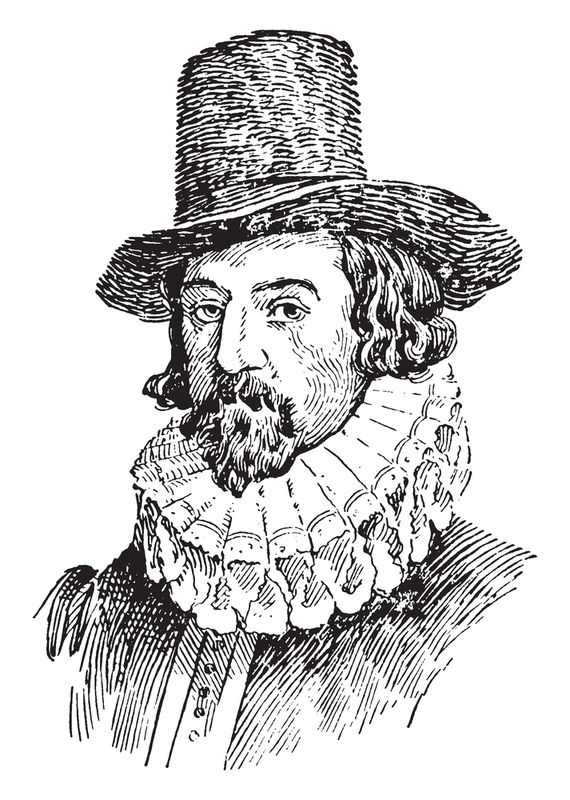Sir Francis Bacon (1561-1626)
FRANCIS BACON
Francis Bacon, one of the greatest names in English history, was born in London, January 22, 1561. He was the youngest son of Sir Nicholas Bacon, who for twenty years had held the seals as Lord Keeper. His mother was a daughter of Sir Anthony Cooke, and one of her sisters was married to the famous Lord Treasurer, Burghley, ancestor of the present Marquis of Salisbury. In 1573 he entered Trinity College, Cambridge, and resided there three years, after which he travelled for the same length of time upon the Continent. On the death of his father in 1579 he returned to England and began his life in comparative poverty. In 1582 he was admitted to the bar, and two years later secured a seat in Parliament. His advancement was slow, but he ultimately became King’s Counsel, and in 1607 was made Solicitor-General. Six years later he became Attorney-General and in 1617 obtained the Great Seal with the title of Lord Keeper. In the following year he received the higher title of Lord Chancellor, and was made Baron Verulam; in 1621 he was created Viscount St. Albans. It is well known that in the last-named year, he was tried for bribery and corruption, and was sentenced to fine and imprisonment. We are not here directly concerned with Bacon’s career as a lawyer, politician, courtier and man of letters, and consequently pass at once to his place in science and philosophy. Of his many scientific and philosophical treatises it is generally conceded that “The Advancement of Learning” and the “Novum Organum” are the most valuable, and we have, accordingly, selected them for reproduction. There is no doubt that Bacon, the first great teacher of the inductive method in modern times, shares with Descartes the honor of inaugurating modern philosophy. This position Bacon owes not only to the general spirit of his philosophy but to the manner in which he worked into a connected system the new mode of thinking, and to the incomparable power and eloquence with which he expounded and enforced it. Like all epoch-making works, the “Novum Organum” gave expression to ideas which were already beginning to be in the air. The time was ripe for a great change. Scholasticism, long decaying, had begun to fall; while here and there a few devoted experimenters were turning with fresh zeal to the unwithered face of nature. The fruitful thoughts which lay under and gave rise to these scattered efforts of the human mind, were gathered up into unity and reduced to system in the new philosophy of Bacon. A long line of thinkers have drawn inspiration from him, and it is not without justice that he has been looked upon as the originator and guiding spirit of that empirical school which numbers among its adherents such names as Hobbes, Locke, Hume, Hartley, Mill, Condillac and the Encyclopedists.
